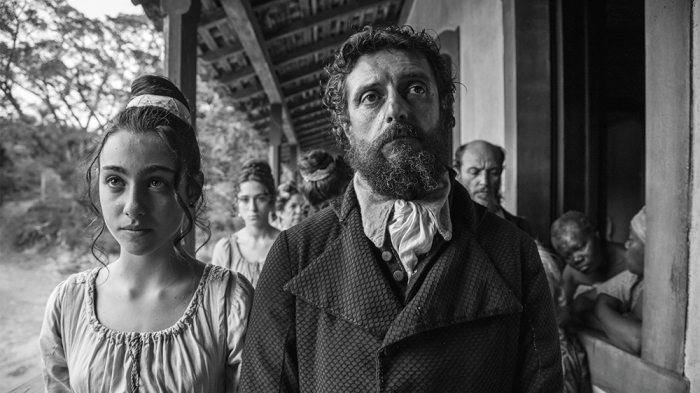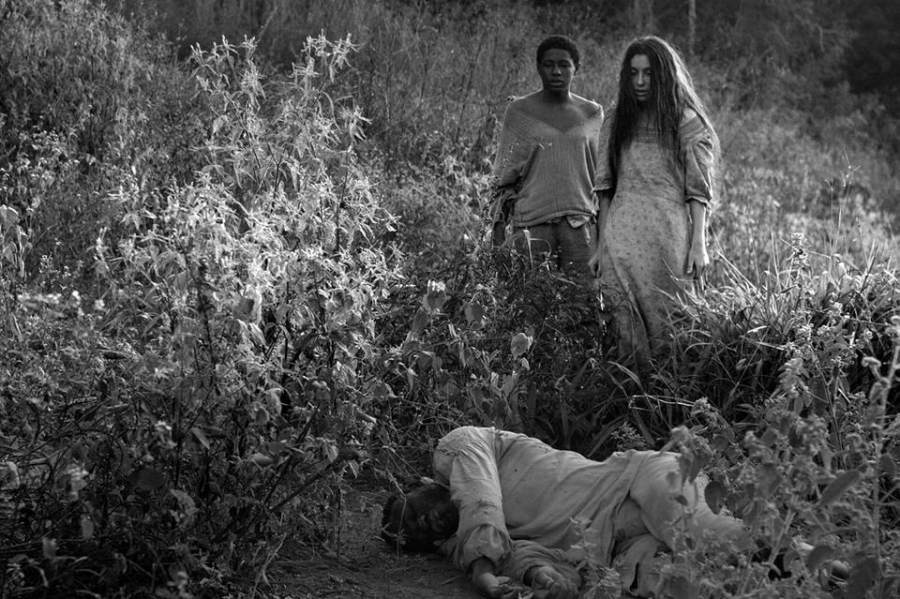

I spoke to director Daniela Thomas on the phone as she took a tour of the Museum of African American History in Boston. The Brazilian filmmaker is in the States to promote her film Vazante, a harrowing work which deals with the lives of slave traders and slaves in the 19th century. As Thomas learned about the history of American heroes like Frederick Douglass and paused the interview to ask her tour guide questions about what she was seeing, it became clear that there was no better place for this conversation to occur. Brazil, like America, has a shameful history of failing to deal with the aftermath of slavery, and the ways in which those seeds of bigotry helped create the societies that are still in power today. In Vazante, Thomas mostly focuses on the experience of Beatriz (Luana Nastas) a young woman who marries her late aunt’s husband (Adriano Carvalho), a severe cattle owner and slave trader obsessed with his work. The film deals in moral chiaroscuro, a perfect reflection of its lush black and white images, which don’t allow for an easy experience for the audience. I spoke to Thomas about the themes of the film, racism in Brazil, and her fascination with beauty.
People in America are still seeing the repercussions of slavery…
In the prisons for example.
And also in the current administration that has raged a war against people of color. I’m curious about the way in which Brazil deals with their past with slavery.
There’s a very famous act that happened as soon as the abolition of slavery in 1888 - later than any other country in the world - Ruy Barbosa who was the minister of finance, burned the documents of property of slaves in order to eliminate this stain from Brazilian history. That way he also avoided the masters claiming compensation for the slaves, imagine the ambiguity of doing that.
Did you make Vazante to remind people of this shameful part of their history?
Cinema has the power of testimony. As a student of history I’ve always felt the need to have a picture of my past, where do we come from. In Brazil identity is an important subject in the arts, cinema has the power to inaugurate images. I loved 2001: A Space Odyssey and its images of space remained forever in my imagination, the idea of conquering the West too, cinema has created such powerful images to help us see the past, and Brazil doesn’t have that.
Was trying to create these images exciting or intimidating?
Both, but exciting mostly. There are important films in the past about Brazil, in the tradition of Cinema Novo for instance. The films were more personal though, more oneiric, not realistic films about the past. That’s why I thought there was a lack.
What would you like to see in a museum dedicated to the history of slavery in Brazil?
I’d like to see the individuals, I’m in the process of collaborating to create what for now we’re calling The Museum of Slavery and Liberty that’s gonna be created in Rio de Janeiro as a monument in the Valongo Wharf were most slave ships arrived in the 1800s. The museum would focus on the people who came, the most important thing is to infuse life and identity to these people, rather than bundling them up in a ship. These individuals gave their lives, created families and created culture. Like in America, Brazilian culture is black.

The film is in black and white which allows for some beautiful images, even though a lot of what we see happen to the characters is horrible. Can you talk about this dynamic?
That was the biggest criticism I got. I wanted to achieve verisimilitude but my background is art direction and set design, so I have a problem with beauty. I can’t escape the idea of the power of nature, the stones, the people...I have an obsession with composition, which can be mistaken for edulcorating, but that was never my intention. The film is very dry too, we have almost no words, there is no music, so I tried compensating that with the composition and the beautiful images.
Linha de Passe is a beautiful film, you’re obviously fascinated with women on the sidelines. Can you talk about why these stories are important?
It’s a question of listening to the silenced, those we take for granted as being non-agents of society. The mother in Linha de Passe is the backbone of the four kids, she’s a very important character in the film.
Vazante felt like a prequel to Linha de Passe, where we see how all the class structures and racial divides applied centuries later.
Exactly. My father told me that up until 50 or 60 years ago girls would be forced to marry at 11 or 12, and before that 6 or 7 year old girls would marry. It was an economic contract between families and big landowners. Men had young wives who would give them many children, and these slave mistresses of which they also had many. That was the system, the way things were. What we’re facing now in the world is the idea that normality is anything but normal. It’s a complex time, we need to review the defaults. In Brazil we’re dealing with that, we have to face the fact that we are racists, a black child has less opportunities to advance in society, and we need to deal with that.
The film ends with the characters in the middle of their story in a way. Are you planning on revisiting them?
As a joke we always talk about Vazante 2: The Mission, in Brazil the film was polemic because black critics complained the black characters had no protagonism and they’d had enough of white people telling black stories. The film got so much press based on these questions, in the same way Detroit got in America. I was interviewed by Globo TV with a very important black writer called Ana Maria Goncalves who wrote an incredible book called Um Defeito De Cor (color defect) which was an invented biography about the mother of Luís Gama, a great abolitionist. Ana Maria confronted me in the interview but at the end in the green room she said to me “I’d love to write the sequel.”
Vazante opens in theaters on 01/12.